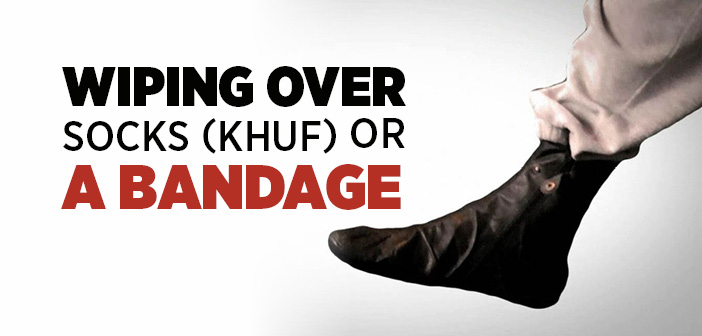Understanding how to do masah on socks is an important aspect of Islamic practices, particularly for those looking to perform wudu efficiently. Many Muslims find themselves in situations where they need to know how to do wudu with khuffayn wudu shoes or other types of footwear. This guide will explore the rules of masah on socks for wudu, including tips for those using plaster or those wondering if they can wipe over socks with holes. In addition to practical advice, we will highlight the importance of online Quran reading and how it can enhance your understanding of Islamic practices.
How to Do Masah on Socks
When performing wudu, if you are wearing socks, it is permissible to masah on socks under certain conditions. Here’s how to perform masah:
- Ensure Socks are Worn after Wudu: The socks must be worn after completing a full wudu. If you had not performed wudu before putting on the socks, you cannot do masah on socks.
- Duration: The allowance to masah on socks lasts for a specific duration—24 hours for residents and 72 hours for travelers.
- masah on socks Technique: When wiping over the socks, use your wet fingers to gently wipe over the top surface of the socks. The act does not require removing the socks.
- Condition of Socks: Many may wonder, “Can you wipe over socks with holes?” The answer is yes, as long as the holes do not expose the skin directly.
- For Those with Plaster: If you are using a plaster for an injury, you can do wudu as normal and wipe over the plaster.
It is permissible to wipe over the khuffayn (leather slippers) or socks for a reason or otherwise. The one who is not travelling may wipe over his socks for one day and one night, and the traveller may do so for three days and nights.
If a person needs to wear socks and has someone who can put them on for him, even if that is in return for payment, then he must wipe over them and it is not permissible for him to move to the option of tayammum or to regard the socks as being like a plaster cast; rather they are socks that he puts on after purifying himself completely.
You might also like: quran english online.
It is permissible for someone else to know how to do masah on socks and wipe over the socks for him, as it is also permissible for someone else to help him to do wudoo’.
Ibn ‘Aabideen (may Allah have mercy on him) said: If he tells someone to know how to do masah on socks and wipe over his khuffayn and he does so, that is valid as it says in al-Khulaasah.
It is not stipulated that the masah on socks be done directly with the hand; if he wiped with a piece of cloth or a sponge dampened with water and attached to a stick (a long-handled sponge, as you mention), that is permissible.
An-Nawawi (may Allah have mercy on him): Our companions said: It is acceptable to know how to do masah on socks and masah on socks with the hand, a finger, a stick, a cloth or something else.
And if he walks on a wet piece of cloth or through wet grass, that is acceptable.
It says in al-Bahr ar-Raa’iq (1/182): If the place that is to be wiped got wet by water or rain the width of three fingers, that is permissible. The same applies if he walks through grass that has been made wet by rain. End quote.
As you can see, the matter is quite simple, praise be to Allah.
If the disabled person does not have anyone who can wipe his socks for him or he is not able to masah on socks themself with a cloth and the like, he should wash the parts of his body that are to be washed in wudoo’, and do tayammum for whatever he is unable to wash.
Secondly:
If it is too difficult to take the socks off and put them back on again, then the ruling on a plaster cast applies and there is no time limit. So he may use them so long as they are on him, and wipe over the entire thing, top and bottom (of the feet)and to the ankles. It is not stipulated that he put them on when in a state of purity. He may wipe them himself, using his hand or something else, or someone else can do masah on socks for him. If he cannot find someone to wipe them for him, even in return for payment, then he may wash the parts of the body that are to be washed in wudoo’ and do tayammum for his feet, as stated above.
We ask Allah to grant well-being to all the sick Muslims.
And Allah knows best.
You might also like: learn quran online.
Islamic Studies Course
In conclusion, knowing how to do masah on socks is essential for maintaining your wudu, especially in today’s fast-paced life. With the convenience of online Quran classes, you can further your understanding of Islamic teachings, including the correct way to perform wudu. Whether you’re learning about khuffayn wudu shoes or looking for guidance on masah on socks, this knowledge is invaluable. Remember to explore online Quran reading resources to deepen your understanding of these practices. With the right techniques and knowledge, you can ensure that your supplications and prayers are performed in accordance with Islamic teachings.
Learn all the main chapters of Fiqh (The Knowledge of Practicing Islam) related to our Life today including Taharah for men and women; Prayers & everything related to it such as congregational prayer, Friday & Eid prayer, eclipse & rain prayer and Funeral Prayer; fasting; Zakah how much to give and to whom including Zakah on modern form of wealth; Hajj and Umrah; Halal foods and Drinks; Fiqh of Marriage, Divorce, Family life and Islamic Parenting; Fiqh of Financial transaction including the diverse range of modern type of financial transaction; and more.
You might also like: online quran reading.
In the convenience of your own home, study with the world’s top Tutors.
Book Your Free Trial Class Today!



